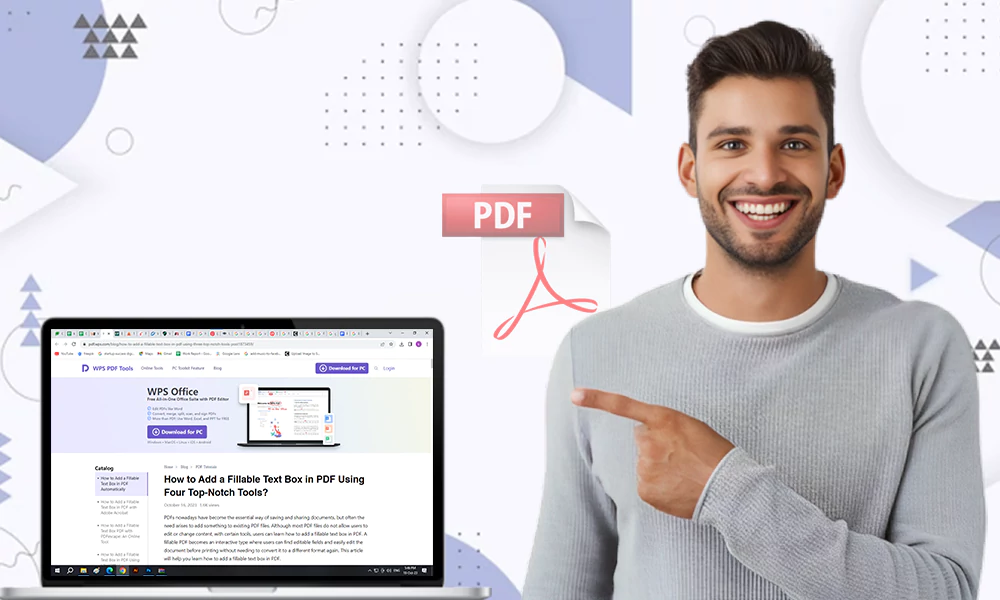11 Reasons Why You Should Use an LMS for Sales Training

The sales staff (almost) effortlessly funnel revenues for the company. Every member of the sales team has their own set of skills and learns certain qualities through training programs.
The online training programs not only assist salespeople in achieving organizational objectives but also in learning vital strategies that help them become better at what they do, allowing them to grow professionally and efficiently adapt to org design change(to learn what is org design, click here). As a result, sales training is quite valuable. For example, virtual selling skills training program teaches sales professionals
These programs train your employees to understand the company’s goals, learn how to perform effectively, and eventually exceed sales targets. One way to ensure that such training sessions are delivered successfully is by adopting digital tools like a learning management system, specifically the one that you can integrate into your CRM. Integrations such as Salesforce LMS integration can help you accomplish all of this with ease. It can help you understand how your training efforts are adding to the revenue performance of your sales team.
This was just one of the benefits of using an LMS for your training. Here are 11 more reasons.
It Provides Flexibility
By combining LMS with the correct authoring solutions, employees receive the most recent lessons and courses digitally that they can consume at their own speed. The employer can still establish deadlines, but employees can work on their training anytime they want prior to the due date. Employee productivity increases as a result of not having to travel to training sessions or skip work to finish it. This is beneficial to the overall sales training in the long run.
It is a Learner Portal That is Mobile-Friendly
A sales team member is frequently found in the field or traveling for business meetings. eLearning programs can be delivered via LMS applications on mobiles, iPads, or laptops. A truly mobile-first LMS would work on multiple operating systems such as iOS, Android, and Windows.
This allows learners to attend courses whenever, wherever, and on whatever device they want. This significantly increases course enrollment rates and completion rates. Since they’re not wasting valuable field time on instructional programs, learners are more likely to finish the training they started.
It is Both Inexpensive & Ideal
A learning management system is not only inexpensive, but it is also an excellent solution for sales training. Since there is no requirement of inviting an instructor to the training venue or of hard copies of training resources, the training expenditure will be significantly reduced. It is adaptable and may handle adjustments at any time without incurring additional fees.
It Facilitates Quick Information Access
eLearning distributes information to employees more quickly, and even instantaneously if necessary. This is especially important for frontline salespeople who exhibit to audiences, chat with customers, and follow up on negotiations. When firms make changes to their products or services, it’s critical that these employees have the most recent information at their fingertips, so that they can quickly answer consumer questions. Companies may quickly give just-in-time product and pricing modifications, as well as success methods, with the help of eLearning training. In this manner, salespeople are kept up to date on market and product updates.
It Has Badges and a Leaderboard
Gamification features of an LMS, such as badges, serve to enhance learner morale. Create personalized logo badges and titles such as Top Performer, Most Dynamic Learner, and so on. Leader boards aid in locating the highest-performing sales staff. These characteristics aid in the development of a competitive atmosphere during the training program, which is a must-have attribute for every salesperson.
It Allows for Simple Tracking of Training Progress
A learning management system is not only capable of providing training materials and equipment that aid in online training, but it also helps in tracking the performance of employees. Leaders may ensure that every employee’s training objective is achieved on time by tracking individual learners ’ progress. Moreover, even if a training course fails to engage staff, you may instantly develop and implement a replacement learning module. Reporting and analytics make it easy to track performance and discover areas for growth in learning.
It Aids in Documentation
It’s easy to overlook something during a regular training presentation. After all, to err is human. However, with eLearning, all materials are preserved in secured online files such as podcasts, PDFs, presentations, or maybe videos. If employees need to recall certain features, for instance, they can return to the same materials. A quick podcast or video chat with a product advocate can assist with typical concerns.
It Promotes Collaborative Learning
An LMS includes chat and online discussions. These tools enable the salesperson to ask questions and receive responses in real-time. Senior sales representatives can help rookie sales representatives polish their abilities by communicating with them. An LMS can help boost the efficiency and quality of training programs in a variety of ways. A modern LMS can help boost the efficiency of field salespeople as they collaborate with the experts and dismisses any chances of jeopardizing the organization’s expansion ambitions.
It Contributes to Content Security and Brand Value Protection
A learning management system simplifies the learning process. All data and information linked to training or the organization’s structure stay intact and accessible to only authorized individuals. With a solid learning management system, online instructors or course curators wouldn’t even have to spend time ensuring data safety. LMS comes with power-packed security features that help keep personal information protected at all times.
It Assures Content Consistency and Quality
Content consistency is important when implementing sales training digitally. Companies can increase their sales preparedness by ensuring they are sending a consistent message globally. Information in the sales sector gets quickly outdated with goods and marketing information being particularly volatile. Every day, various promotions, discounts, incentives, or agreements are created, particularly in the sales department. To get high-quality content, information must be regularly updated in order to keep up with all of these constant changes. Adopting eLearning production tools makes updating information simple and ensures high-quality, updated, and relevant content.
It Has Provisions for Multiple Media Engagement and Evaluations
An instructor might choose videos, audio, documents, PDFs, or other materials to deliver online training content with an LMS. You may keep all of your training materials in one location and then apply them to whichever evaluations you choose. Assessment engines give trainers an easy way to create question banks for their sales and marketing training.
Conclusion
Learning management systems provides comprehensive coverage of the training and upskilling processes. The Learning Management System’s design help organizations deliver excellent learning experiences to the sales teams.
Apart from its impressive set of features, an LMS is also economical, and cost-effective, with numerous advantages compared to traditional learning systems. It is its benefits that make it a no-brainer for organizations to consider using an LMS for sales training.
- It Provides Flexibility
- It is a Learner Portal That is Mobile-Friendly
- It is Both Inexpensive & Ideal
- It Facilitates Quick Information Access
- It Has Badges and a Leaderboard
- It Allows for Simple Tracking of Training Progress
- It Aids in Documentation
- It Promotes Collaborative Learning
- It Contributes to Content Security and Brand Value Protection
- It Assures Content Consistency and Quality
- It Has Provisions for Multiple Media Engagement and Evaluations
- Conclusion










